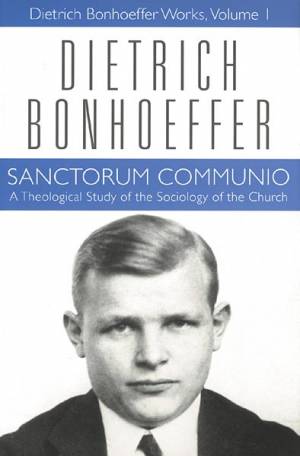Its always a bit annoying when you discover someone else has already developed the line of thought you’ve been working on for a while – especially when they do it better. Which, realistically, and because I don’t think of myself as anything special, I come to expect most days. My wife bought home ‘St. Paul Among the Philosophers‘ edited by John Caputo and Linda Martin Alcoff for me to read last night. It’s a book based off a conference held a couple years ago that discussed how philosophers are using Paul, with a focus on how Paul advocates the unversality of truth. So I cracked it open and began reading Alan Badiou, someone I’ve been wanting to read for a while, and immediately found what he was saying is something I’ve been thinking over and trying to develop for a few months.
“Any process of truth is at variance with the figure of the same. It interrupts the repetition and cannot then be sustained by homogeny. No truth can be sustained by the expansion of homogeny, but neither can it be by the construction of identities, for singularity is universalizable. But universalizable singularity is necessary at variance both with the singularity constructed from identity and with homogeny. The world is the arena for the play of both axiomatic homogeny (market, capital) and mythological identity. We might say that the world is, in part, an interplay of the symbolic and the imaginary in response to the collapse of the real. And this eliminates the event, and so fidelity to the event, which is the subjective essence of the truth. The world is then hostile to the process of truth insofar as it resists the universal of identity through homogeny or the adhesion to constructed identities. The symptom of this hostility is an effect of the overlapping of names: where the name of a truth procedure would have its place, another name appears which expels it in the direction of homogeny. The name “culture” thus obliterates the name of “art,” for the cultural can be inscribed within the market. The name “technique” obliterates the name “science,” as Heidegger said. The word “management” obliterates the word “politics.” The word “sexuality” obliterates “love.” This system of culture, technique, management, sexuality is the superposition of the registers of homogeny (pgs 27-28).”
How he talks about superposition, homogeny and singularity made me read it a couple more times, I think I’m gonna have to read some more of Badiou’s work. In the rest of his chapter he takes this line of thought and interacts with Paul. This is yet another reason why I’m keen on looking further into post-structuralism.
//Jimmy

 I’m currently reading through authors who discuss the nature of a theological anthropology which starts with pneumatology. In ‘
I’m currently reading through authors who discuss the nature of a theological anthropology which starts with pneumatology. In ‘ This was something I came across today that seemed a little crazy.
This was something I came across today that seemed a little crazy. 


